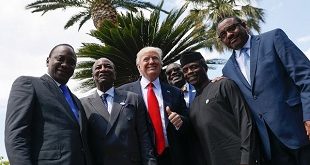
By Phillip Karugaba
Micro loans provide the first step to emergence of vibrant SMEs
The impact of microcredit in reducing poverty has been debated for over 40 years with the article, ‘Microfinance: Good for the poor?’ that appeared in the Independent (Aug 28 – Sept 03 2015) being another voice. The article recognises the positive impact of microfinance in poverty eradication and suggests changes to enhance this impact. The article however rates the impact of microcredit in poverty reduction as marginal and recommends job creation through SMEs as the one sure way to poverty reduction. We wish to respond to the article, explain how micro loans to micro clients develop the SME sector and conclude on why microfinance is still a relevant vehicle in the struggle to reduce poverty in Uganda.
According to the World Bank (2013), 83% of Uganda’s population lives in the rural areas and as rightly stated in the article, their access to micro-finances is still low. However, with the growth of rural savings organisations such as SACCO’s and VSLA’s in the last 10 years, innovations such as mobile banks (vans and phones), significant inroads are being made to reach the rural population.
It is true that MFIs offer short-term credits that are generally expensive as a result of the high cost of borrowing for most micro-finance institutions (MFIs), and their comparatively higher operational costs. The average operating cost as a percentage of interest income for the top nine commercial banks was 61% compared to 92% for the top six microfinance institutions. (Source: 2014 published account).
It is also true that a vibrant SME sector creates jobs (and alleviates poverty). It is however not entirely true that this is a substitute for microfinance. It is even unfair to compare the impact of the two strategies in isolation as seen in the article. MFIs such as Opportunity Bank indirectly create these SMEs, starting off with micro loans in groups to rural people which are used to improve household livelihoods, savings, housing (and collateral) as a first stage in poverty reduction. Effectively, the MFIs recognise that the creation of a vibrant and sustainable SME sector starts with improving households; the income levels, education, health and other basic service levels. This is followed by intense financial literacy programs which develop the same borrowers from a group setting to borrowing as individuals with larger loan values leading slowly to the creation of potential SME businesses. Even with our recent entry into collateralised lending, Opportunity Bank has already seen quite a number of such changeovers. The Opportunity Bank data on the transformation impact shows that clients increase their savings balances and loan amounts after about six loan cycles.
The threat to microfinance from banks is inherent and expected especially since banks, with their ability to fund huge promotional activities, can sway micro-savers. However, outreach and the social objectives and offerings of microfinance institutions make them more attractive to the micro clients. The market for MFIs remains because commercial banks cannot provide micro loans to the micro clients.
Innovations such as mobile banking are not a risk to MFIs but an opportunity to supplement the MFI services, and offer a cheaper and faster channel to enhance access to clientele. Indeed many MFIs, are embracing mobile banking to enable clients transact via branch-less banking which in the long run reduces operational costs.
The proposed legislative amendments to permit agency banking are eagerly anticipated. In agency banking, ordinary shopkeepers act as agents for banks, thus helping reduce the high overhead costs related to outreach.
Microfinance is indeed a tool that Africa cannot do without. Microfinance meets the needs of a broad range of the population—including the poorest. As a player in the MFI sector, Opportunity Bank has to optimise its use of mobile banking and the soon to come agency banking to reduce its operational costs and attract significant capital injections to offer cheaper credit. More importantly, the strategy must focus on creating a sustainable SME sector through initially improving household units, incomes levels, and micro businesses.
****
Phillip Karugaba is the chairman board of directors of Opportunity Bank Uganda Ltd.
 The Independent Uganda: You get the Truth we Pay the Price
The Independent Uganda: You get the Truth we Pay the Price


